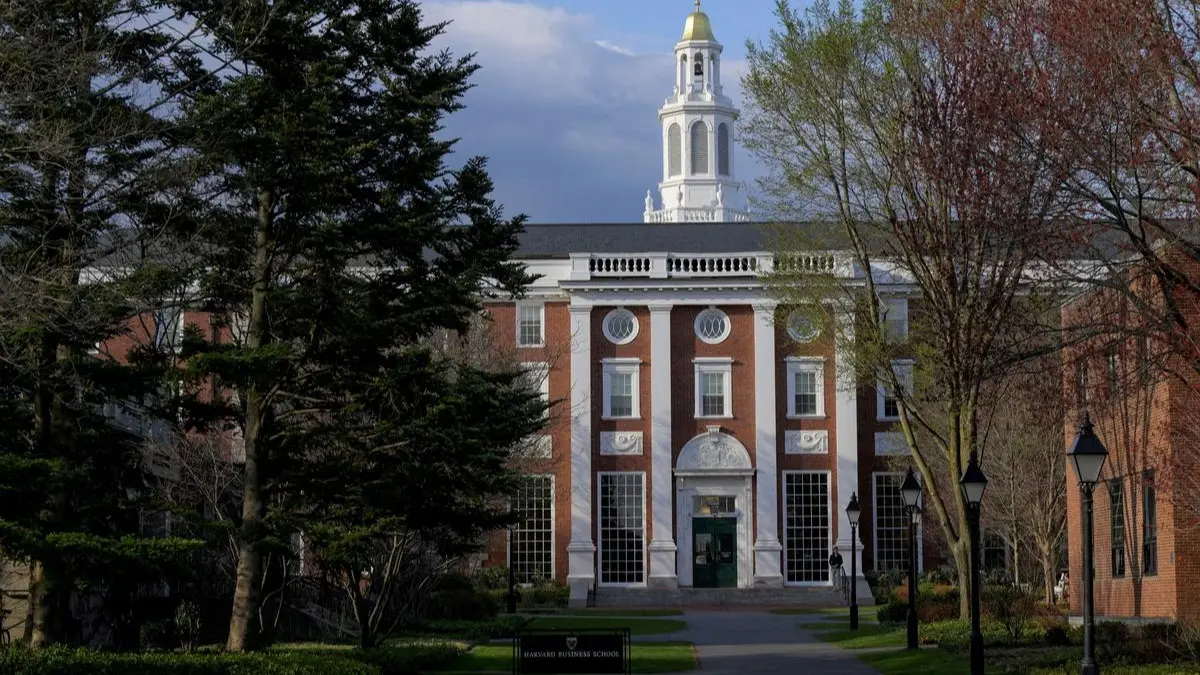Updated 30 June 2025 at 19:56 IST
Trump Administration Targets Harvard Over Alleged Anti-Semitism, Threatens Funding Cuts
This latest escalation comes as a surprise after recent indications that a resolution was near.
- World News
- 3 min read

The Trump administration has intensified its scrutiny of Harvard University, accusing the prestigious institution of violating federal civil rights law by failing to address anti-Semitic incidents on campus. This latest escalation comes as a surprise after recent indications that a resolution was near. The administration’s findings could jeopardize billions in federal funding for Harvard, raising questions about academic freedom, campus safety, and the balance between federal oversight and institutional autonomy.
A Clash Over Civil Rights
In a strongly worded letter to Harvard President Alan Garber, the Joint Task Force to Combat Anti-Semitism declared that an investigation by the Office for Civil Rights at the Department of Health and Human Services had concluded. The letter, signed by Assistant Attorney General Harmeet Dhillon and others, stated, “The Office for Civil Rights at the Department of Health and Human Services ‘finds that Harvard University is in violent violation of Title VI of the Civil Rights Act.’” Title VI prohibits discrimination based on race, color, or national origin in programs receiving federal funding.
The investigation pointed to specific incidents, claiming Harvard “has been in some cases deliberately indifferent, and in others has been a willful participant in anti-Semitic harassment of Jewish students, faculty, and staff.” Examples included Jewish and Israeli students being “assaulted and spit on,” campus imagery that “trafficked in obvious anti-Semitic tropes,” and a “multiweek encampment” that allegedly disrupted and instilled fear in Jewish and Israeli students.
A Threat to Federal Funding
The administration’s letter, according to a report from the Wall Street Journal, issued a stark warning: “Failure to institute adequate changes immediately will result in the loss of all federal financial resources and continue to affect Harvard’s relationship with the federal government.” It added, “Harvard may of course continue to operate free of federal privileges, and perhaps such an opportunity will spur a commitment to excellence that will help Harvard thrive once again.” This threat follows earlier actions, including a freeze on $2.2 billion in federal grants in April 2025, part of a broader review of $9 billion in grants and contracts tied to Harvard and its affiliated hospitals, such as Mass General and Dana-Farber Cancer Institute.
Advertisement
The potential loss of funding is significant. Federal research grants support groundbreaking work at Harvard, including advancements in biomedicine, artificial intelligence, and public health. For instance, Harvard Medical School’s Joel Habener recently received a Breakthrough Prize for his work on GLP-1, a discovery that led to diabetes and obesity treatments. George Q. Daley, dean of Harvard Medical School, emphasized that such partnerships have “paid off for Americans in life-saving advances,” warning that funding cuts could disrupt critical research.
As the legal and political battle unfolds, the stakes are high—not just for Harvard, but for the future of American higher education. The clash underscores deep divisions over how universities should address discrimination, manage protests, and maintain their autonomy in an era of heightened federal scrutiny.
Advertisement
Published By : Sagar Kar
Published On: 30 June 2025 at 19:56 IST
